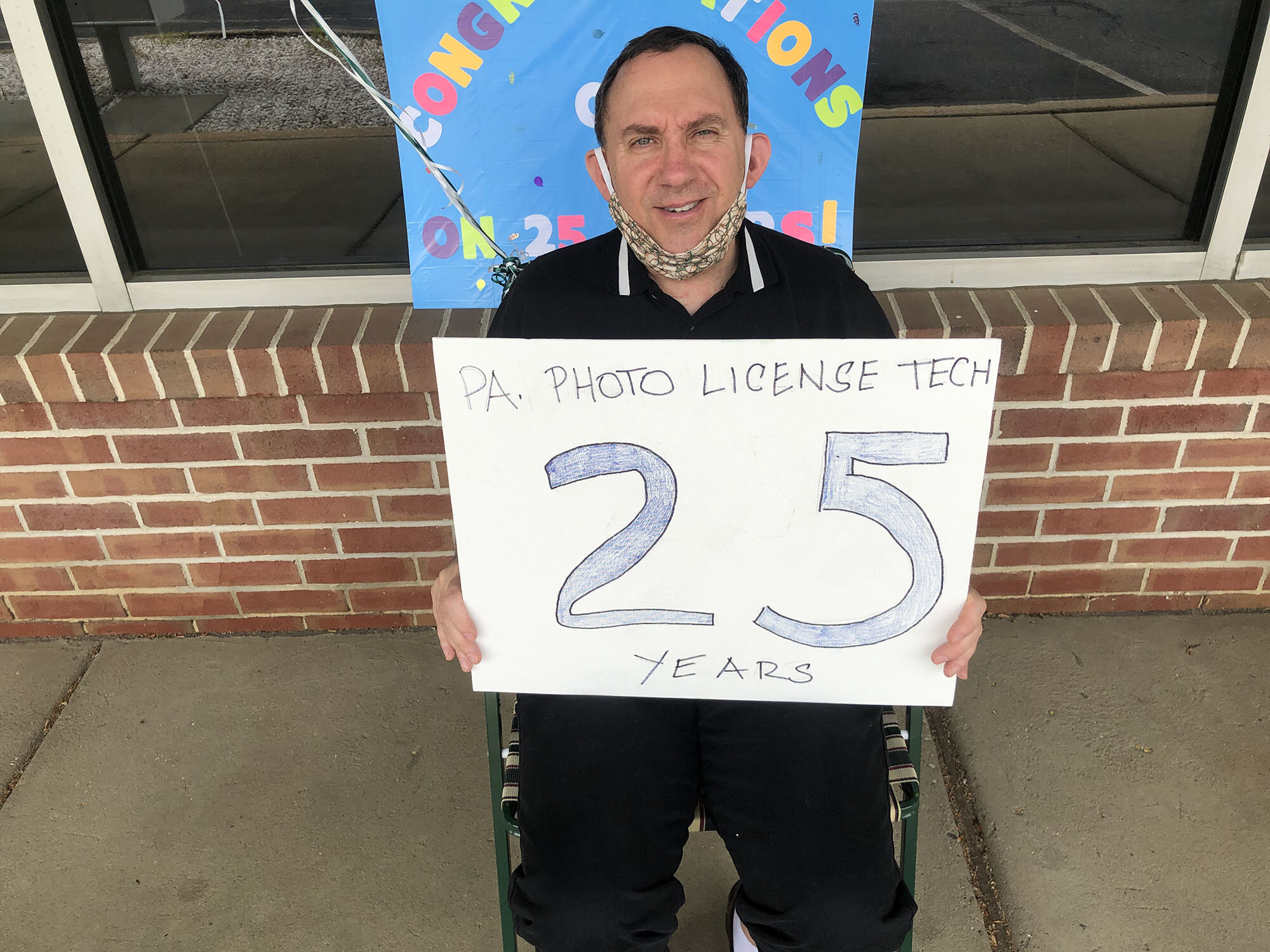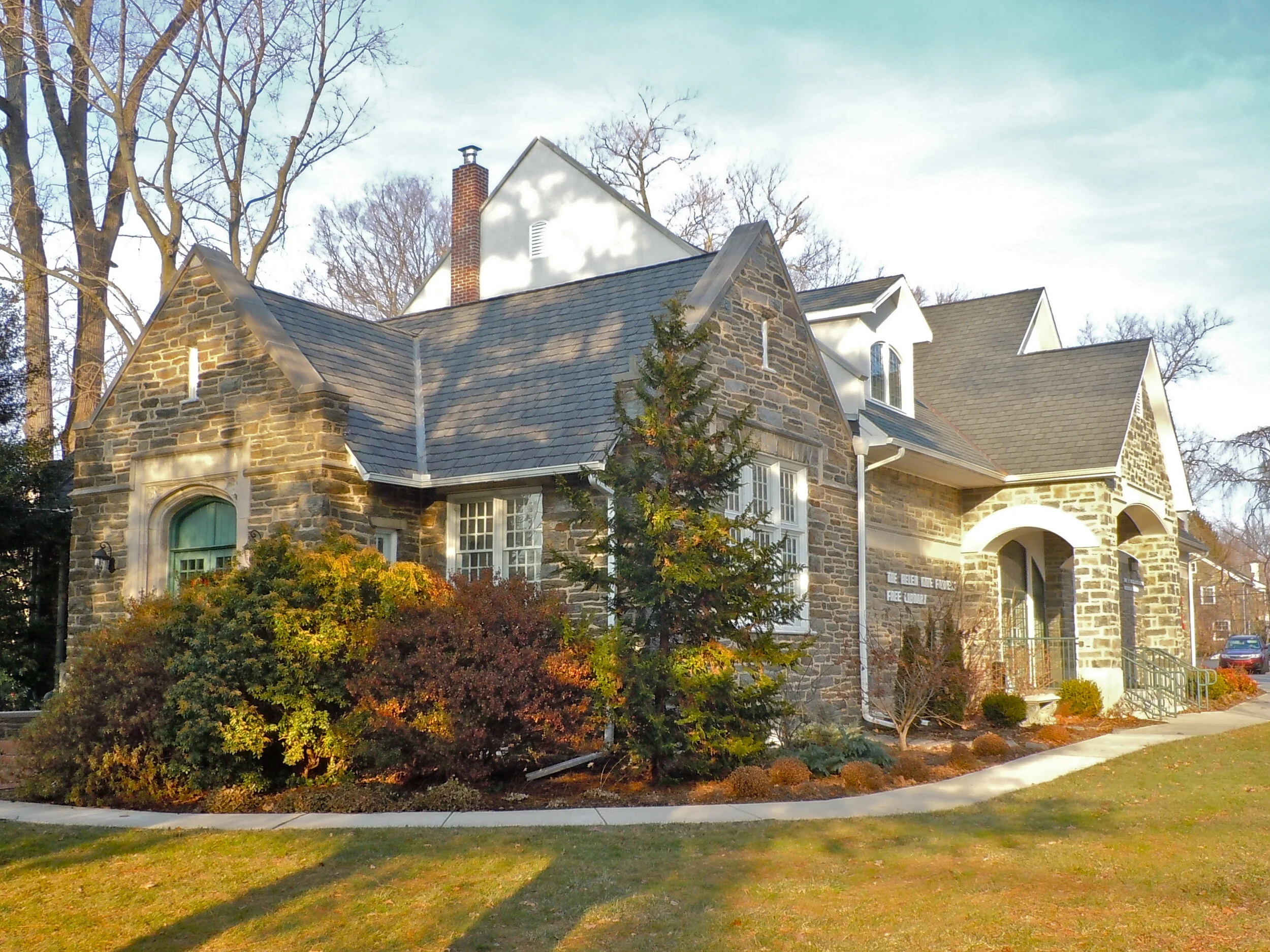COVID Brings Challenges and Opportunities for Disabled Community Members
O.G. Swan has missed seeing his friends and family members this year. Photo courtesy of Ann Swan
In the mornings, Janine Latella of Wallingford asks her mother what they’re going to do that day.
“I always tell her, ‘There’s not much we can do,’” Sandy Latella reports.
Janine, who is 46, has intellectual disabilities. Her mother says Janine understands why things have changed, but that doesn’t mean she likes it.
Before the pandemic, support assistants from LinGroup, Inc., a Delaware County social services agency, would take her for activities twice a week. “They’d take her bowling, to the movies, the Y, and out to lunch,” says Sandy Latella. “She always looked forward to that because it was the only time she got out of the house and socialized. She doesn’t have close friends.”
The pandemic has been hard for lots of people, but many disabled people have had unique challenges. Organizations and individuals who shopped for them, drove them places, or helped them shower could no longer come, or came less often, leaving some with little or no support.
Janine Latella is among the lucky ones. She lives with her mother, who is committed to caring for her. Unable to go out much, she has discovered a passion for jigsaw puzzles. Latella has completed nearly a dozen 500-piece puzzles this year and is working on one with a thousand pieces. She also has more time to practice math and spelling.
Janine has also learned to love Zoom, enjoying both its novelty and the way it connects her to people. Zoom “perked her up,” her mother says. “She got to see the people from the LinGroup again.”
Oliver Swan, also of Wallingford, is less lucky. Too much time on Zoom puts the 50-year-old, known as O.G., at risk for seizures.
“O.G. was born prematurely,” says his mother, Ann Swan. He suffered brain damage as a result of several operations.
Before the pandemic, O.G. Swan loved to socialize, his mother says.
He enjoyed walking to stores and running into people he knew. Now, he misses going out to lunch and visiting friends, sisters, nieces, and nephews. “He understands why he can’t see them in person,” Ann Swan reports. “But that doesn’t mean he has to like it.”
To fill the time, he watches old comedies on television: “The Golden Girls” and “All in the Family.” He also likes Steve Harvey.
His mother credits O.G.’s easy-going nature with how well he has adapted to the changes. “He’s so laid back,” she says. “He’s handling the pandemic better than me.”
But Swan was sad to miss a party, scheduled for last May, to celebrate the 25 years he has worked as a technician at the Photo License Center in Aston.
“He was looking forward to that party for such a long time,” his mother says.
Dorothy Briscoe cast her first ballot in 2020. Photo courtesy of Dorothy Briscoe
For 50-year-old Dorothy Briscoe, the pandemic has been hard in some ways and an opportunity for growth in others. Wearing a mask makes it difficult to breathe, says the Aston resident, who has intellectual disabilities. She doesn’t get to go out as much as she used to. Worst of all, the workshop where she used to work has closed.
“I miss some of my coworkers,” she says. She also misses the paycheck.
At the same time, the pandemic has given Briscoe new independence. Staff from Values Into Action used to shop for her, but that didn’t always go well. “They bring the wrong stuff,” she says. Now, Briscoe shops for herself, and she says she enjoys it.
She also moved in with her sister, Darlene, who has similar disabilities. It was the first time they bonded, she reports, adding, “I do the cooking.”
Briscoe voted for the first time in 2020, using a mail-in ballot. She says she was happy when she learned that the candidate she had voted for won. “I was watching on TV, and I was crying,” she recalls. “Because I got my wish.”
Still, Briscoe is impatient for the pandemic to end, not least because she hopes to move to a new apartment. “This COVID-19,” she says, “it’s holding me up.”
This article was funded by the Waterhouse Family Institute for the Study of Communication and Society and made possible through a collaboration with the Institute on Disabilities at Temple University. You can read more stories at swat.ink/we-will-talk, made possible with generous support from the Independence Public Media Foundation.
Editor’s note: This is the first of four articles about how COVID-19 is affecting people who are living with disability in our community — written by journalists who identify as disabled. The Swarthmorean is running these articles this spring at the invitation of Immaculata University professor Kelly George of Wallingford, who is the principal investigator on the project, “Witnessing the Impact of COVID-19 in Disabled People’s Lives: A Web Archive and Community Newspaper Series.” The project is supported by a grant from Villanova University’s Waterhouse Family Institute for the Study of Communication and Society.





